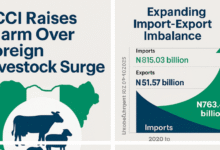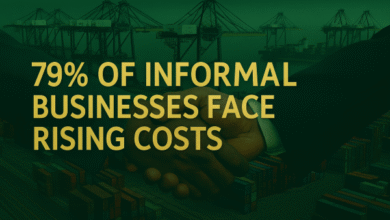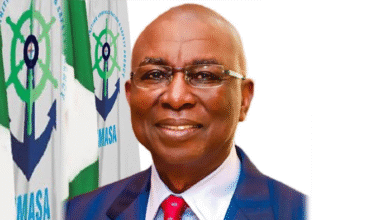Lawmakers Forbid VAT increase, Make New Proposition
 The Nigerian Senate has fully rejected the proposed 7.5% Value Added Tax (VAT) currently planned by the Federal Government to take effect by January 2020.
The Nigerian Senate has fully rejected the proposed 7.5% Value Added Tax (VAT) currently planned by the Federal Government to take effect by January 2020.
The disclosure of the rejection was made available by the Chairman of the Senate Committee on Army, Senator Ali Ndume, while speaking with newsmen, after the plenary session on Wednesday.
According to Ndume, the earlier VAT increase would ultimately create grave discomfort for larger percentage of Nigerians as the prices of goods and services were bound to hit the roof. Hence, it cannot stand. Commenting further, Ndume described the proposed VAT increase as skewed against ordinary Nigerians.
Meanwhile, the Senator disclosed that the lawmakers were seeking a legislative action to impose a 9% tax on Communication Services.
According to Ndume, a 9% communication service tax shall be levied on such Electronic Communication Services like Voice Calls; SMS; MMS; Data usage both from Telecommunication Services Providers and Internet Service as well as Pay per View TV Stations.
It was also stated that the proposed Communication Service Tax Bill provides that the rate of the tax is 9% of the charge for the use of the communication service. Essentially, Senator Ndume introduced the Bill for an Act to establish the Communication Service Tax at Wednesday’s plenary session. The bill will now go for a second reading before being referred to the appropriate committee for further legislative action including a public hearing.
READ ALSO: The Implication of VAT Increment to Nigerian Economy
Ndume also said the Communication Service Tax was a way of distributing wealth in such a way that it would not affect the ordinary people.
The Bill partly reads: “The tax shall be levied on Electronic Communication Services supplied by Service Providers. For the purpose of this clause, the supply of any form of recharges shall be considered as a charge for usage of Electronic Communication Service.”
“The tax shall be paid together with the Electronic Communication Service charge payable to the service provider by the consumer of the service.”
It was gathered that the Federal Executive Council has approved an increase in the VAT to 7.5% from 5%. The Minister of Budget and National Planning Zainab Ahmed disclosed this in Abuja.
According to Ahmed, the new VAT is important because the federal government only retains 15% of the VAT — 85% is actually for the states and local governments and the states need additional revenue to be able to meet the obligations of the minimum wage.
It is expected that if approved by the federal lawmakers, the new VAT rate will take effect in 2020. In Nigeria, VAT replaced the sales tax in 1994 and was pegged at 5% by the military government of Sani Abacha.
Following the harsh reality of the global decline of crude oil prices, it has become obvious that Nigeria can no longer rely on oil revenue to sustain the economy; hence, the government is all out to explore sources to improve revenue.
The communication service tax, for instance, implies that for every N100 airtime you buy, you only have access to N91. The higher you buy, the more tax you pay. This will apply to products differently.
If approved, the tax is payable whether or not the person making the supply is permitted or authorized to provide electronic communications services.
Samson Oyedeyi











